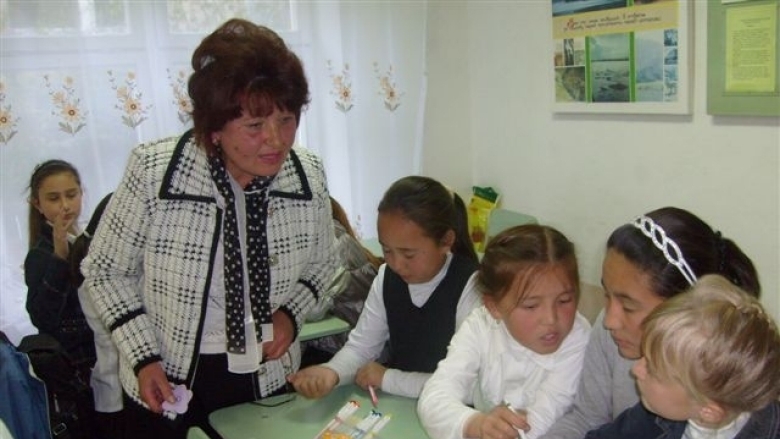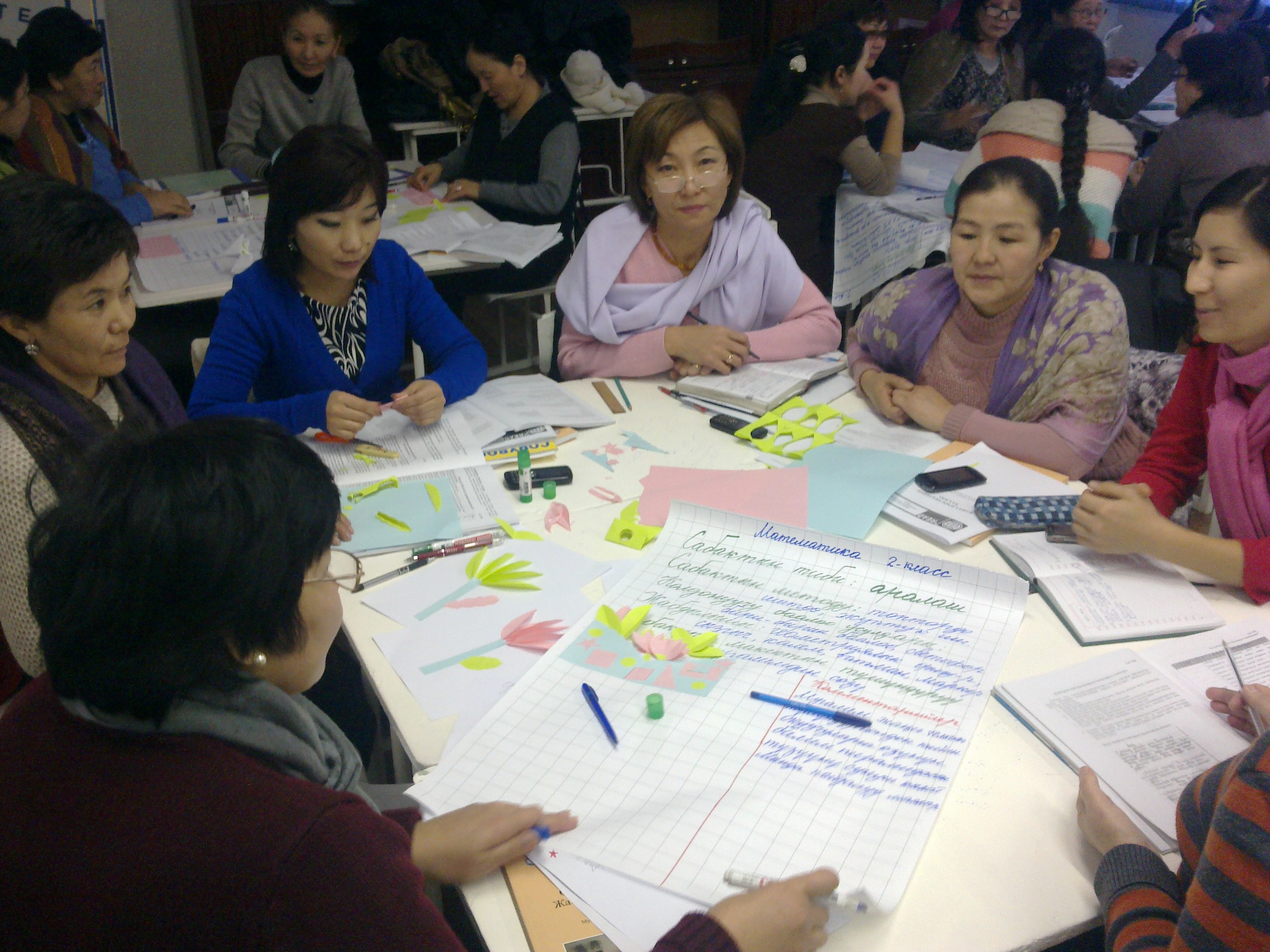By Dingyong Hou and Gulmira Sultanova
During our recent mission to Bishkek in March 2017, news that the Kyrgyz Republic had won the competition for a second Russia Education Aid for Development (READ 2) grant generated a buzz of excitement and celebration amongst government officials.
Mr. Salidin Kaldybaev, the newly-appointed Deputy Minister of Education, spent one hour elaborating the results achieved under READ 1, and more importantly, the need to build on those gains. For example, more than 6000 teachers who were trained in classroom-based assessment under READ 1 were now learning to implement this newly-acquired skill in their routine classroom practice. The staff of the National Testing Center spoke passionately about what they had learned under the previous grant and how this had enhanced their technical skills in test development and analysis of results.
Ms. Gulmira Kudaiberdieva, the new Minister of Education, who had just gotten off a plane from Finland where she went to study that country’s well-performing system, rushed to the wrap-up meeting and talked about her evolving Education First agenda, and the urgent need to build an effective teaching workforce coupled with systemic support for learning measurement. All of this was music to our ears, drawing a sharp contrast to the reticence we had experienced only a few years ago.
It was December 2010 and the OECD had just released the results for countries participating in the Program for International Student Assessment (PISA) 2009. The disappointing results for Kyrgyz students, who were at the bottom of the list, sent a shock wave through this former Soviet republic, a beautiful, land-locked country in central Asia. Education leaders, teachers, and students could not believe what had happened. It evoked a sense of shame in some, and strong denial in others who were proud of their Soviet legacy. Despite the disappointment, the PISA results served as a wake-up call to the deep learning crisis that had taken hold of the country since its independence.
The shock led to deep soul searching. The government realized that something had to be done to address this alarming learning crisis. With support from the World Bank and other development partners, a new strategy was rolled out to improve the quality of learning in the Kyrgyz Republic.
The World Bank quickly deployed technical assistance under READ 1 to support the government’s efforts to improve teacher effectiveness in the classroom and better measure student learning. The READ initiative was timely and essential in building local capacity by creating a professional team of psychometricians (assessment specialists) from the ground up. The initiative also upgraded the classroom assessment skills of more than 6,000 primary teachers, improved the School Leaving Examination, and developed a new strategy for the national assessment system.
The Kyrgyz Republic plans to use their READ 2 grant to capitalize on the gains made under READ 1 and further enhance the country’s assessment capacity. It will do this through three key activities:
(a) Supporting evidence-based decision making by building local capacity to use assessment data at the system/school level;
(b) Improving teacher effectiveness by linking classroom practice with a well-validated teacher classroom observation instrument; and
(c) Modernizing the national examination system by realigning the School Leaving Test to 21st century learning standards for a more reliable measure of student learning achievements.
The Kyrgyz Republic’s track record, commitment, and enthusiasm for quality assessment is commendable and the global education community will continue to support it as it moves forward in pursuit of learning for all.


